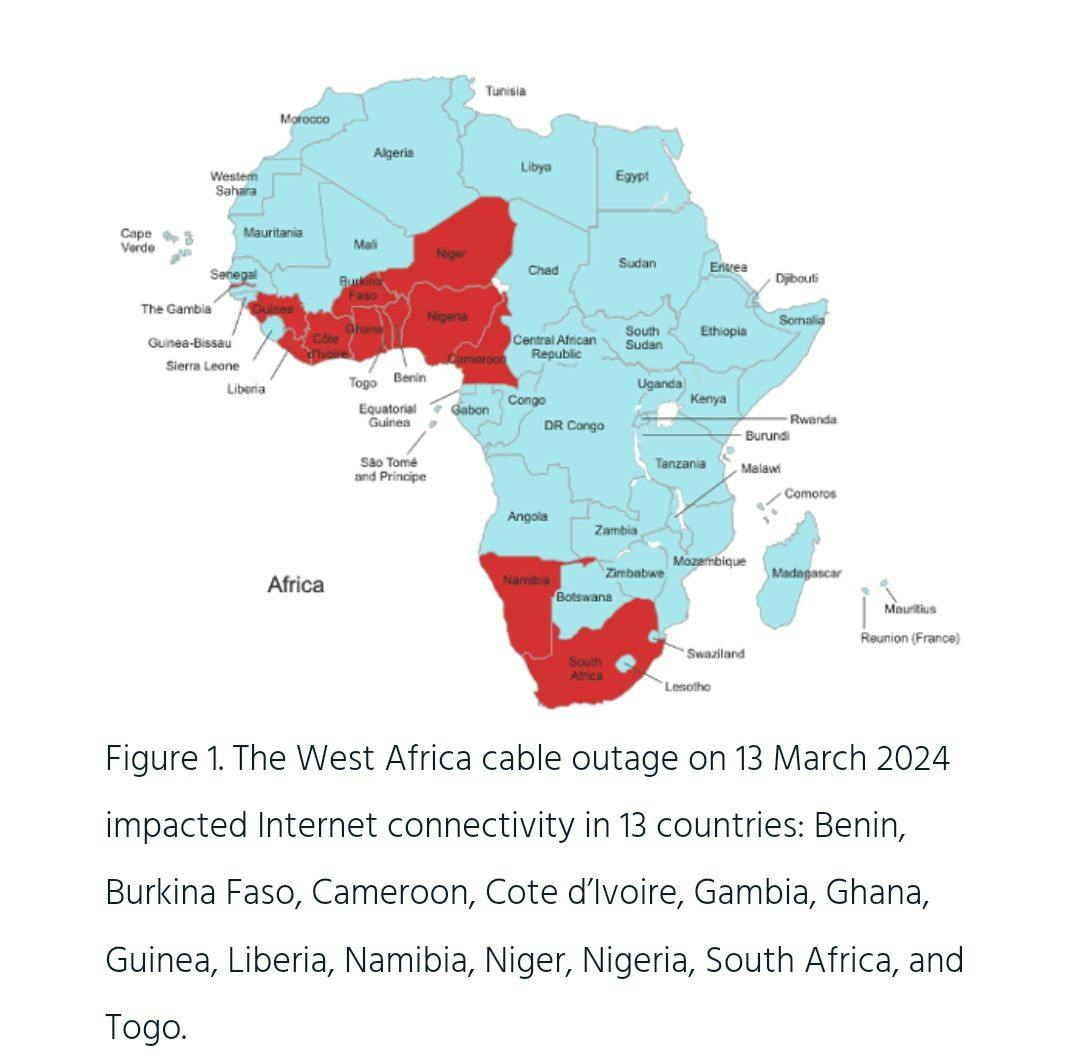
2024-12-7 06:55:55 Author: hackernoon.com(查看原文) 阅读量:5 收藏
Life in rural areas can be very challenging, especially when you have to climb a tree in search of a stable internet connection. Growing up in Africa and in a Nigerian village located in the back of beyond, I experienced firsthand the everyday struggle with poor internet and roaming charges.
Despite a fast-growing internet-savvy population, Africa's internet remains the slowest in the world when compared to global averages. And even as 4G and 5G networks are expanding in Africa, the

Grappling with a snail pace internet connection is already bad enough, the recent undersea cable disruptions that affected most parts of West Africa such as Nigeria, Benin, Togo, etc., is a clear indication of the continent's long overdue reliance on global internet infrastructure as well as its vulnerability to accidental damage.
 When critical infrastructures like the undersea cables connecting the African continent with the rest of the world suffer disruptions, it could lead to an outage that could impact various sectors, including businesses, education, and communication.
When critical infrastructures like the undersea cables connecting the African continent with the rest of the world suffer disruptions, it could lead to an outage that could impact various sectors, including businesses, education, and communication.
The internet, as we know it, is a critical digital infrastructure that has continued to shape the modern world. While the situation in Africa attests to varying rates of internet penetration, the lack of access to quality internet connection remains a major concern.
The result is a continent where internet service providers are exploitative and where governments have successively failed to invest in local infrastructure and diversification strategies at a time when the continent is at a crucial point in history marked by the emergence of cutting-edge digital technologies such as blockchain technology.
DePIN: A Digital Vision for a People-Owned Infrastructure
An innovative solution known as a decentralized physical infrastructure network ( DePIN), is pushing the boundaries of blockchain technology by breaking into critical sectors of society.
Decentralized Physical Infrastructure is more than a technology trend, it's a bold move to reorient the world toward a decentralized ownership model of critical infrastructures such as transport, energy, cloud computing –and even the internet.
What makes DePIN innovative is that it cuts across conventional methods and offers cost-effective solutions to every challenge leveraging blockchain technology and mobilizing people as an integral part of the solution. This is huge!
Additionally, it is apparent that the centralized control of critical services poses a significant risk: a single point of failure. As happened in the coastal region of West Africa, where a major disruption of the internet was recently recorded, the risk of a single point of failure is undoubtedly a major disadvantage of centralized ownership of internet infrastructure.
Most importantly, the significant selling point of DePIN projects is the fact that they offer incentives and rewards to users participating on the network. Whether it is providing cloud storage space, using a decentralized ride-sharing service, or contributing to a wireless infrastructure, DePIN offers token rewards.
What Does It Mean for Africa?
Africa, or the Global South, has the potential to emerge as a global hub for DePIN innovations. As an emerging market, it can leverage DePIN to fix its poor internet and significantly reduce its reliance on global internet infrastructure, thus boosting productivity among its fast-growing population.
By implication, to leverage a cost-effective solution with low entry barriers and to resuscitate critical sectors of its economy by investing in indigenous DePIN companies or startups that can improve internet access by leveraging blockchain.
Examples of DePIN Innovations That Can Boost Africa's Internet Space
Although most DePIN projects are startups, a handful of them such as Helium, Drife, Roam, etc. are already gaining traction.
Helium Network, a DePIN innovation, for instance, is often dubbed as the people's network due to its ambition to provide global wireless technology, reduce reliance on traditional telecom service providers, and lower the cost of connectivity. Users on the network provide hotspots verified by the network's consensus mechanism, proof of coverage, and token rewards.
Roam is another exciting example of a decentralized physical infrastructure (DePIN) innovation designed for a decentralized wireless network, with the potential to bridge Africa's internet pain points.
Through an innovation called OpenRoaming Wifi, it seeks to provide stable and uninterrupted internet connection, ideally suiting a continent like Africa where constant internet interruption is rife. This solution is rooted in the idea of being able to access a roaming internet connection from your location.
Incentivizing over one million users on its decentralized platform involves providing free data credits based on interactive activities and milestones designed to keep them invested in the ecosystem in the long run.
Conclusion
Africa continues to grapple with poor internet connectivity, high costs, and poor infrastructure; its reliance on global internet infrastructure shows its high level of vulnerability to disruptions.
The struggle for quality internet access is real across the continent, impacting individuals and businesses alike.
At this time of significant technological advancements, DePIN is bringing about cost-effective solutions to the control and maintenance of critical public infrastructure like the Internet. To this end, Africa as a continent should gravitate toward DePIN innovations by supporting local talent and innovators.
如有侵权请联系:admin#unsafe.sh